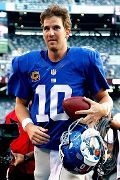|
Memo to Tom Coughlin: It's not that hard. Play to the end of the clock. If we're going to seriously examine Coughlin's pitiful complaint against Greg Schiano and the Tampa Bay Bucs about the final kneel-down Sunday, the single most helpful first move we can make is to jettison the NFL's unwritten rules. They're a smoke screen here.  Don't misunderstand: Every pro league has its set of off-the-books guidelines, part of an overall etiquette particular to its sport. No problem there. It is a time-honored tradition, in fact, to refer to rules that aren't actually codified anywhere and say, "You don't do that. Everybody knows that." Fine. But there's a catch: These unwritten rules are arbitrarily summoned and unevenly enforced, just as they were Sunday. If Schiano's Bucs were trailing by two possessions or more, then sure, making a desperate attempt to knock the ball loose on the Giants' final snap looks foolish, even petty. But that's only if. In reality, this was a one-touchdown game, and a wild one at that. What sort of idiotic unwritten rule says a team is supposed to quit if it looks bleak out there? Is there anything more enervating in professional sports than a team lying down in the final seconds when it is within a single score of tying or winning the game? Play the clock to the zeroes. That's it. This is football. Play the damn game. Implicit in Coughlin's complaint -- and he's certainly not the only person in the league who thinks Schiano's decision to attack on the final kneel-down was bush-league -- is the idea that the game was, for Tampa Bay, a lost cause, and therefore gentlemen's rules apply. Not so fast. Were the Bucs' odds of creating a turnover remote? Oh, absolutely. But if there were no chance at all that anything could go haywire on the final snap, why did Coughlin have two backs positioned on either side of Eli Manning? Why was another back set eight to 10 yards behind the quarterback? Really? Nothing could happen? As for the Giants' linemen being surprised that they were rudely pushed back by the attacking Bucs defensive front, how is that possible, exactly? Could the Giants not recognize that the Bucs were in a full-play formation? "What I do with our football team is that we fight until they tell us, 'Game over,' " Schiano, the rookie coach from Rutgers, said after his uncomfortable midfield postgame meeting with Coughlin. "There's nothing dirty about it. There's nothing illegal about it. We crowd the ball like a sneak defense and try to knock it loose."
And so what? That's football, right? You play the game until it's over. This is not a sport of casual capitulation. Where's Herm Edwards when you need him? To the idea of preventing needless injury: If Coughlin, or any other NFL coach, wants to be sure his players are fully protected, his best move -- by far -- is to play hard until the final snap. How many times have you heard a pro athlete or coach say it? The time you're most vulnerable to injury is the time, in any game, when you slow up or stop going 100 percent for any reason. What team stops going hard in a one-touchdown game? There is nothing riskier in pro sports than assuming what an opponent is going to do in the name of "etiquette," so don't assume. Schiano is clearly trying to make a larger point with his Bucs players -- about finishing, going strong for 60 minutes, playing every down. Perhaps he is trying to change a culture in Tampa Bay. They're all valid notions for his insistence on their going hard, even when it's down to the final snap. But if Schiano also accidentally forces a culture shift in the NFL at large by causing teams to re-think their blanket surrender of a one-possession game on the basis of, "Hey, nothing's going to happen here, right?" then he will have done the league a service. Play it down to the nubs. That's football.
|

